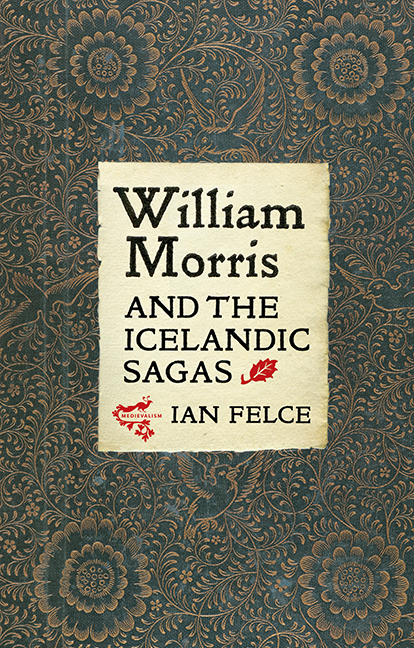Book contents
- Frontmatter
- Dedication
- Contents
- Acknowledgements
- Author's Note
- List of Abbreviations
- Introduction
- 1 ‘The Lovers of Gudrun’ and the Crisis of the Grail Quest
- 2 The Sagas of Icelanders and the Transmutation of Shame
- 3 Grettir the Strong and the Courage of Incapacity
- 4 Heimskringla, Literalness and the Power of Craft
- 5 Sigurd the Volsung and the Fulfilment of the Deedful Measure
- 6 The Unnameable Glory and the Fictional World
- Conclusion
- Bibliography
- Index
- Miscellaneous Endmatter
6 - The Unnameable Glory and the Fictional World
Published online by Cambridge University Press: 17 July 2019
- Frontmatter
- Dedication
- Contents
- Acknowledgements
- Author's Note
- List of Abbreviations
- Introduction
- 1 ‘The Lovers of Gudrun’ and the Crisis of the Grail Quest
- 2 The Sagas of Icelanders and the Transmutation of Shame
- 3 Grettir the Strong and the Courage of Incapacity
- 4 Heimskringla, Literalness and the Power of Craft
- 5 Sigurd the Volsung and the Fulfilment of the Deedful Measure
- 6 The Unnameable Glory and the Fictional World
- Conclusion
- Bibliography
- Index
- Miscellaneous Endmatter
Summary
SINCE MACKAIL WROTE of ‘the long struggle, the deep brooding, through which [Morris] arrived at his final attitude’ (LWM, ii, p. 23), writers who have considered how his thought developed over the course of his life have tended to argue that the period of social campaigning and politicised writing that began in 1876 and continued throughout the 1880s until his death in 1896 emerged from what Kinna has called ‘the Romantic impulses that inspired his artistic career’. In other words, scholars have looked to Morris's art to explain the development of his politics, with the tension between his ‘apparently regressive’ veneration of the Middle Ages and the emergence of a ‘progressive’ desire for revolution often forming the ‘starting-point for discussions of the political character and practicality of his socialist ideal’.
Those scholars who have looked specifically to Morris's Norse-inspired medievalism to illuminate his social impulses after 1876 have typically concentrated on two questions: first, whether there is a relationship between his engagement with Old Norse literature and his particular formulation of socialism in his campaigning from the early 1880s onwards; and, second, whether his knowledge of the sagas shaped the socialistic themes of the ‘late’ romances in the late 1880s and the 1890s, particularly those that depict people of Germanic, though not explicitly Scandinavian, origin. This chapter considers the claims that have been made in relation to these two questions, specifically interrogating the possibilities that Morris's conception of the Norse Armageddon ragnarök influenced his model of the socialist revolution, that Iceland inspired his notions of ideal governance, and that the ‘late’ romances are an extension of his earlier saga-inspired works. It concludes by suggesting that Morris's engagement with Old Norse literature was integral to his adopting an ideal of heroic action that coincided with the earliest stages of his campaigning but that it did not directly inspire either his socialism or the ‘late’ romances of the 1880s and 1890s.
There are reasons particular to Morris that have encouraged scholars to look to one phase of his life to explain another. Though many of his interests were consistent and enduring, his passionate nature meant that the focus of his work proceeded in discrete phases of intensity. In MacCarthy's words, his life ‘unfolded in cycles’ characterised by whatever he was currently focused on (LOT, p. 598).
- Type
- Chapter
- Information
- William Morris and the Icelandic Sagas , pp. 156 - 170Publisher: Boydell & BrewerPrint publication year: 2018

